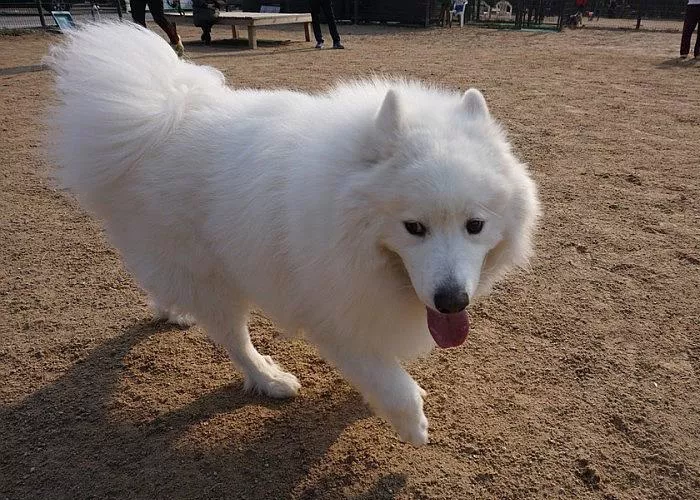For Samoyed enthusiasts, especially those new to dog ownership, understanding when a Samoyed stops growing is crucial. This knowledge helps in providing appropriate care, nutrition, and exercise throughout the dog’s growth stages. Let’s take a professional look at the factors that determine the end of a Samoyed’s growth.
Physical Growth Stages of Samoyeds
Puppy Stage (0 – 6 months)
During the first few months of a Samoyed puppy’s life, growth is rapid. In the first month, they mainly focus on nursing and gaining strength. As they enter the second month, they start to explore their surroundings more actively. By three months, you can notice a significant increase in their height and weight. Puppies at this stage are like sponges, absorbing nutrients for their growing bodies. Their bones are soft and still developing, and they need a diet rich in calcium and phosphorus for proper bone growth.
Adolescent Stage (6 – 12 months)
From six months to a year, Samoyeds are in their adolescent stage. Growth rate slows down a bit compared to the puppy stage, but it’s still substantial. Their legs start to lengthen, and their bodies become more proportionate. The coat also begins to change, developing the thick double – coat characteristic of the breed. This is a crucial time for muscle development as well. Owners should provide enough exercise to help build muscle, but not over – exercise as their bones are still not fully mature.
Factors Affecting Growth
Genetics
Genetics play a major role in determining how big a Samoyed will grow and when it will stop. If the puppy comes from a line of larger – sized Samoyeds, it’s more likely to grow bigger and may take a bit longer to reach its full size. On the other hand, if the parents are smaller, the puppy may reach its growth limit earlier. Breed standards set by kennel clubs provide a general guideline for the size of Samoyeds, but individual genetic variations can still occur.
Nutrition
Proper nutrition is essential for a Samoyed’s growth. Puppies need a balanced diet with the right amount of protein, fat, vitamins, and minerals. A diet lacking in essential nutrients can stunt growth or lead to health problems. For example, insufficient calcium can result in weak bones and improper skeletal development. High – quality puppy food, formulated specifically for large – breed puppies, is recommended during the growth stages. As the Samoyed approaches adulthood, the diet can be adjusted to maintain a healthy weight.
Exercise
Appropriate exercise is important for a Samoyed’s growth. In the early stages, light exercise like short walks and playtime helps in muscle development. As they grow older, more strenuous exercise such as running and hiking can be introduced. However, over – exercising a young Samoyed can put stress on their developing joints and bones, potentially causing growth problems. It’s important to find the right balance between exercise and rest.
When Do Samoyeds Typically Stop Growing?
Most Samoyeds reach their full height by around 12 – 18 months.
However, their bodies may continue to fill out and gain muscle mass until they are about 2 – 3 years old. The growth of the head and chest may also continue for a bit longer than the growth of the legs and overall height. Female Samoyeds may stop growing slightly earlier than males. By the time they are two years old, Samoyeds are considered fully mature in terms of physical growth. But it’s important to note that some individual dogs may deviate from this general timeline.
Monitoring Growth
Regular visits to the veterinarian are essential for monitoring a Samoyed’s growth. The vet can track the puppy’s weight, height, and overall development. They can also provide advice on nutrition and exercise based on the dog’s growth rate. Owners can also keep a record of their Samoyed’s growth at home, noting down weight and height measurements at regular intervals. This can help in quickly identifying any abnormal growth patterns.
Conclusion
In conclusion, a Samoyed’s growth is a complex process influenced by multiple factors. While they generally stop growing in height by 12 – 18 months and reach full physical maturity by 2 – 3 years, individual differences exist. By providing proper nutrition, exercise, and regular veterinary care, owners can ensure that their Samoyeds grow up healthy and strong. Understanding the growth process also helps in building a strong bond with your furry friend, as you can better meet their needs at each stage of their development.
Related topicsa
- What’s The Best Food For A Shih Tzu With Allergies?
- Can Dogs Eat Strawberries?
- Should I Feed My Dog Organic Food?


